The Ultimate Guide to Cereal Bar Production Line in 2024
Introduction to Cereal Bar Production Line
The cereal bar production line is a pivotal component in the food manufacturing industry, particularly as we advance into 2024. With the market for cereal bars experiencing continuous growth, the importance of an efficient and reliable cereal bar production line cannot be overstated. These production lines are designed to handle large volumes while maintaining the quality and consistency required to meet consumer expectations.
Modern cereal bar production lines comprise several key components, each contributing to the overall efficiency and effectiveness of the process. From ingredient mixing and cooking to forming, cooling, and packaging, each stage is optimized to ensure the highest standards of production. As we move forward, advancements in technology and automation are expected to further enhance these systems, making them more adaptable and capable of producing a diverse range of cereal bar products to cater to evolving market demands.

Technological Advancements in Cereal Bar Production
The cereal bar production line in 2024 is set to be revolutionized by a myriad of technological advancements. These innovations are designed to enhance efficiency, improve product quality, and meet the increasing demands for customization and sustainability in the market.
One of the most significant advancements in the cereal bar production line is the integration of automation and robotics. Automated systems streamline the entire production process, from ingredient mixing and forming to baking and packaging. This reduces the need for manual labor, minimizes human error, and ensures a consistent and high-quality output. Robotics, in particular, are being used for tasks that require precision and speed, such as cutting and packaging, further increasing the efficiency of production lines.
Innovative machinery and equipment also play a crucial role in modernizing the cereal bar production line. New machines are being developed to handle a variety of ingredients and formulations, allowing manufacturers to produce a wide range of cereal bars, including those that are gluten-free, organic, or high-protein. These machines are designed to be highly flexible, enabling quick changeovers between different product types and reducing downtime.
Another important technological advancement is the implementation of advanced quality control systems. These systems use sensors and cameras to monitor the production process in real-time, detecting any deviations from the desired product specifications and ensuring that only products that meet strict quality standards reach the market. This not only helps in maintaining product consistency but also in adhering to safety regulations.
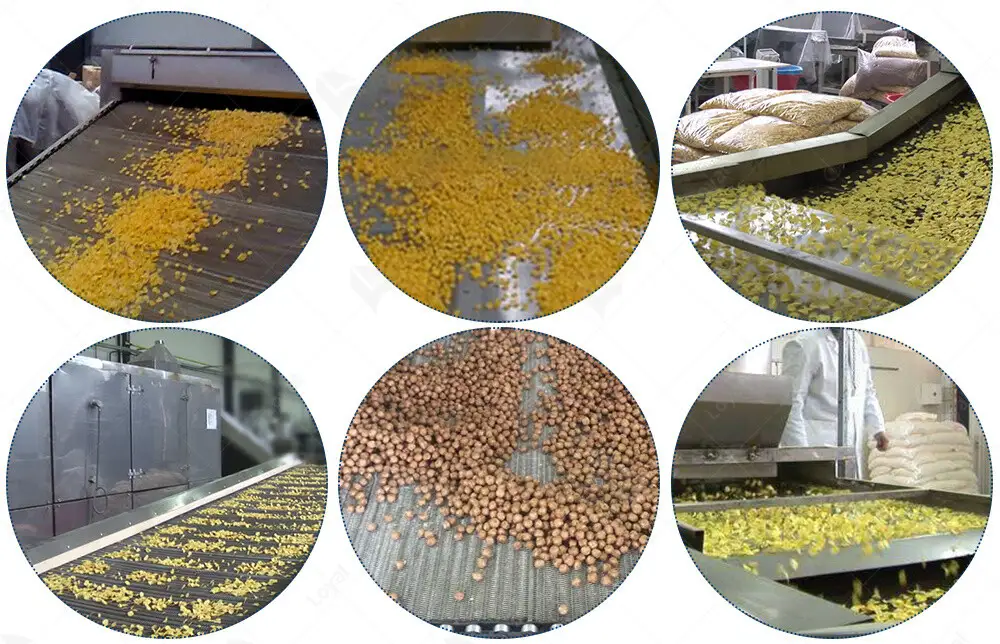
Benefits of using advanced technology in production lines
| Aspect | Description |
| Increased Efficiency | Advanced technology in a cereal bar production line significantly boosts efficiency. Automated systems streamline various processes, from ingredient mixing to packaging, reducing manual labor and increasing production speed. |
| Consistency and Quality | Utilizing cutting-edge machinery ensures consistent product quality. Precision in measurements and operations minimizes human error, leading to uniform cereal bars and maintaining high standards. |
| Cost Reduction | While the initial investment in advanced technology can be substantial, the long-term benefits include reduced labor costs and minimized waste. Efficient use of resources and energy contributes to overall cost savings. |
| Flexibility and Customization | Modern production lines equipped with advanced technology can easily adapt to produce a variety of cereal bars, catering to changing consumer preferences and dietary trends. This flexibility is crucial for staying competitive in the market. |
| Enhanced Safety | Advanced technology often includes built-in safety features, reducing the risk of accidents and ensuring compliance with health and safety regulations. This protects both workers and consumers. |
| Data and Analytics | Incorporating technology that collects and analyzes data allows for continuous improvement in the production process. Manufacturers can monitor performance, identify issues, and optimize operations for better outcomes. |

Sustainable Practices in Cereal Bar Production
In 2024, the cereal bar production line is increasingly incorporating sustainable practices to meet the growing demand for environmentally friendly products. These practices not only reduce the environmental impact but also improve efficiency and appeal to eco-conscious consumers.
One of the key sustainable practices in cereal bar production is the use of eco-friendly materials. Manufacturers are turning to biodegradable and recyclable packaging options to minimize waste. By using materials such as plant-based plastics and recycled paper, the cereal bar production line can significantly reduce its carbon footprint.
Another important aspect is the implementation of energy-efficient processes. Modern cereal bar production lines are equipped with machinery designed to consume less energy while maintaining high productivity levels. Renewable energy sources, such as solar and wind power, are increasingly being integrated into production facilities to further reduce reliance on fossil fuels.
Waste reduction is also a critical component of sustainability in the cereal bar production line. Manufacturers are adopting practices such as precision dosing and automated ingredient handling to minimize waste during production. Additionally, waste materials generated during the manufacturing process are being repurposed or recycled, contributing to a circular economy.
Water conservation is another area where sustainable practices are making an impact. Advanced water management systems are being employed to reduce water usage and improve efficiency. These systems recycle and reuse water within the production process, ensuring minimal waste and conserving this vital resource.
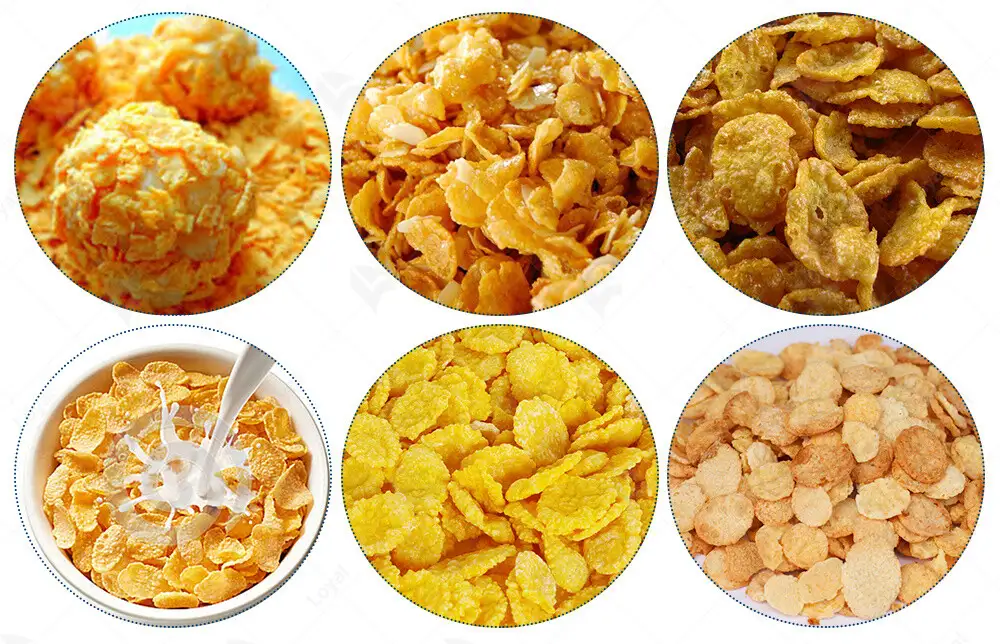
Customization and Flexibility in Cereal Bar Production
The cereal bar production line in 2024 is poised to adapt to the increasing demand for customization and flexibility. Consumers today seek personalized options that cater to their specific dietary needs and preferences, pushing manufacturers to innovate and modify their production processes.
One significant aspect of customization is the ability to produce various types of cereal bars, including gluten-free, organic, high-protein, and low-sugar options. This requires production lines that can handle a diverse range of ingredients and formulations. Advanced machinery equipped with precise dosing and mixing capabilities ensures that each batch meets the desired nutritional and taste specifications.
Flexibility in the cereal bar production line also involves quick changeover capabilities. Modern production lines are designed to switch between different recipes and product types with minimal downtime. This efficiency is crucial for meeting the market's dynamic demands without compromising on productivity or product quality.
Furthermore, integrating modular equipment into the cereal bar production line enhances flexibility. Modular systems allow manufacturers to easily add or remove components based on production requirements. This adaptability not only supports the creation of new cereal bar varieties but also streamlines maintenance and upgrades, reducing overall operational costs.
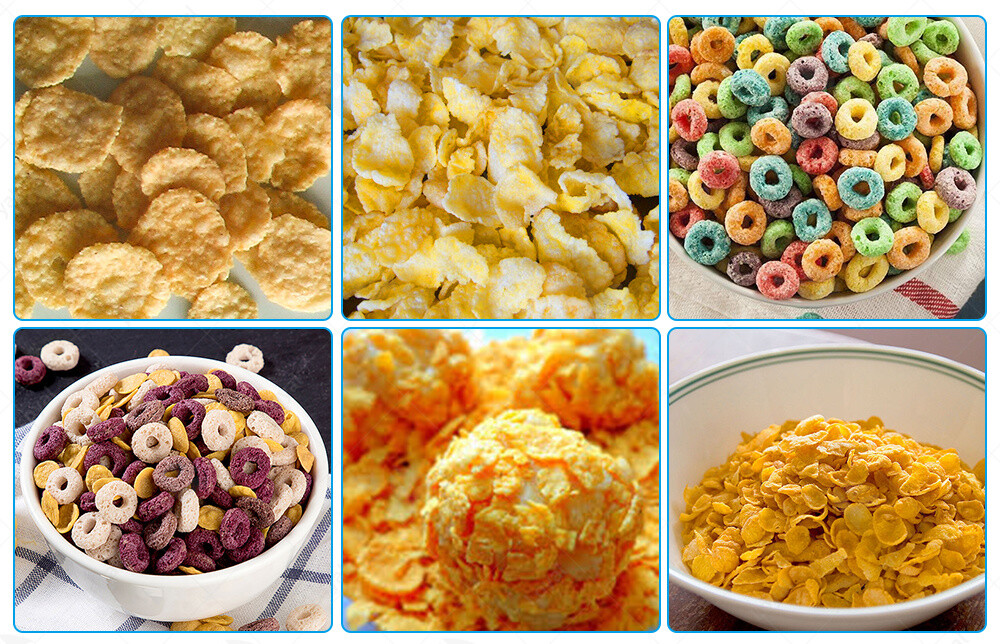
Quality Control and Safety Measures
In the realm of cereal bar production, maintaining stringent quality control and safety measures is paramount. The effectiveness of a cereal bar production line hinges on its ability to produce consistently high-quality products while adhering to safety standards. As an industrial food machinery expert, ensuring that every aspect of the production line is optimized for quality and safety is essential for meeting regulatory requirements and consumer expectations.
Quality control in a cereal bar production line begins with the careful selection and inspection of raw materials. Ensuring that all ingredients meet the required standards before they enter the production process is the first step in maintaining product quality. This involves rigorous testing for contaminants and verifying the nutritional content to align with product specifications.
During the production process, automated systems play a crucial role in maintaining consistency and precision. Advanced machinery equipped with real-time monitoring capabilities allows for continuous assessment of various parameters, such as temperature, mixing ratios, and baking times. This level of control minimizes variations and ensures that each cereal bar produced is of uniform quality.
Safety measures are equally critical in the cereal bar production line. Implementing comprehensive safety protocols helps prevent contamination and ensures that the final product is safe for consumption. This includes regular sanitation of equipment, proper training for personnel on hygiene practices, and adherence to food safety standards like HACCP (Hazard Analysis Critical Control Points).
Moreover, incorporating traceability systems within the cereal bar production line enhances both quality control and safety. These systems enable manufacturers to track each batch of cereal bars from raw material sourcing to final packaging, facilitating quick identification and resolution of any issues that may arise.
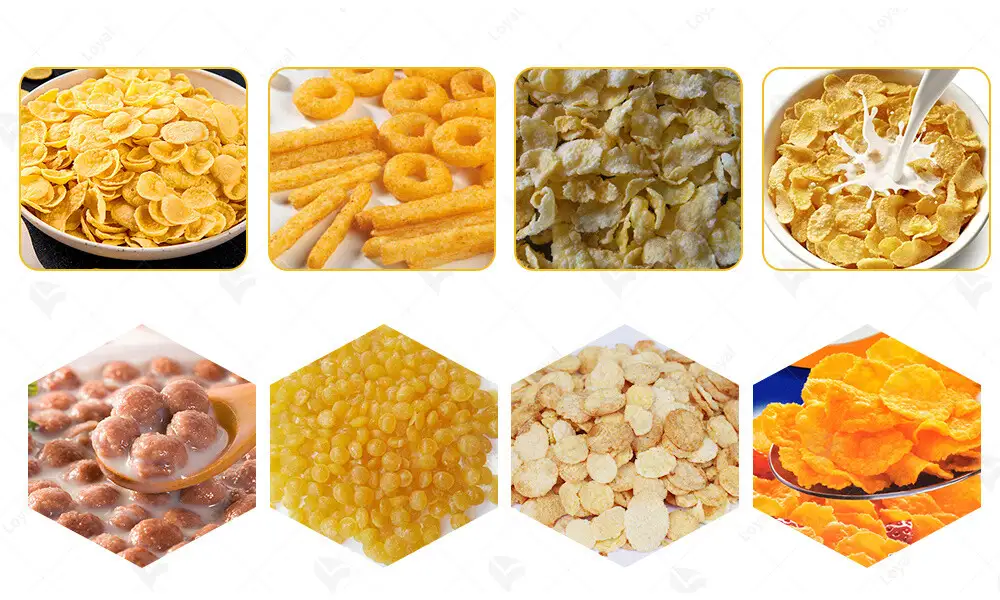
Production Efficiency and Cost Management
In the evolving landscape of cereal bar production, achieving optimal efficiency and effective cost management are crucial for maintaining competitiveness. The cereal bar production line in 2024 will leverage advanced technologies and innovative strategies to streamline operations and reduce expenses.
One of the primary ways to enhance production efficiency is through the adoption of automation and robotics. Modern cereal bar production lines are increasingly integrating automated systems that handle tasks such as ingredient mixing, molding, and packaging. These systems not only accelerate production speed but also ensure precision and consistency, reducing the likelihood of errors and waste.
Furthermore, energy efficiency is a significant aspect of cost management in cereal bar production. Utilizing energy-efficient machinery and implementing energy-saving practices can substantially lower operational costs. For example, switching to LED lighting, optimizing equipment usage during off-peak hours, and maintaining machinery to ensure it operates at peak efficiency can lead to significant cost savings.
Another vital strategy is the optimization of raw material usage. By carefully managing inventory and utilizing predictive analytics, manufacturers can minimize waste and ensure that materials are used efficiently. This not only cuts costs but also supports sustainability efforts, which are increasingly important in today's market.
Additionally, regular maintenance and timely upgrades of machinery are essential to avoid downtime and costly repairs. A proactive maintenance schedule can help identify potential issues before they become significant problems, ensuring continuous production and avoiding interruptions that could affect productivity and profitability.
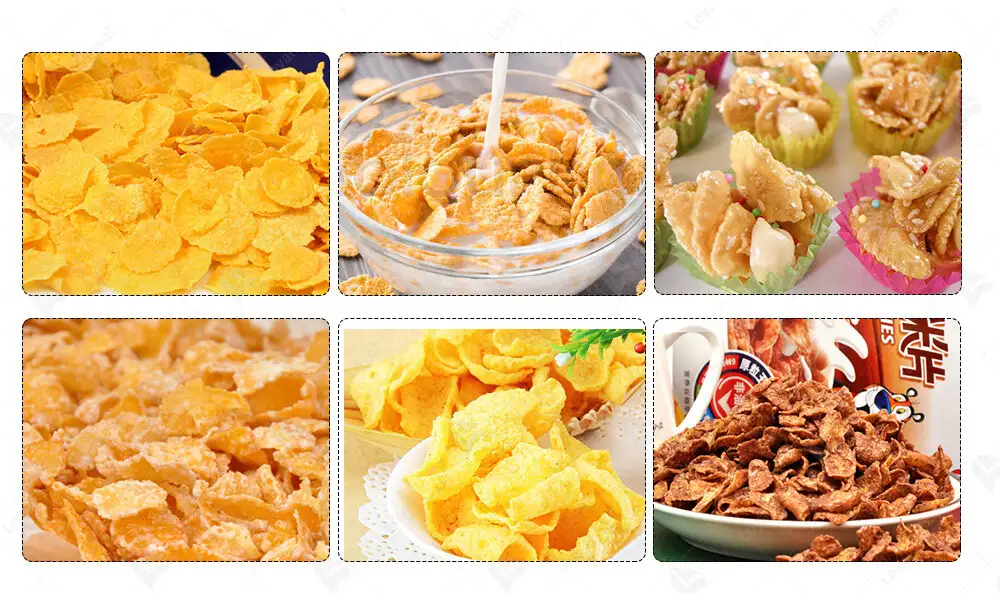
Market Trends and Consumer Preferences
The cereal bar production line is heavily influenced by evolving market trends and consumer preferences. In 2024, several key trends are shaping the industry, driving manufacturers to adapt and innovate.
One prominent trend is the growing demand for health-conscious products. Consumers are increasingly seeking cereal bars that offer nutritional benefits, such as high protein content, low sugar, and organic ingredients. This shift is prompting producers to incorporate healthier ingredients and develop new formulations that cater to these preferences.
Another significant trend is the rise of convenience foods. Busy lifestyles are leading consumers to choose on-the-go snacks like cereal bars. The cereal bar production line must be efficient in producing a variety of convenient, single-serve options that meet this demand without compromising on quality.
Sustainability is also becoming a crucial factor for consumers. Eco-friendly packaging and sustainable sourcing of ingredients are gaining importance. Manufacturers are responding by implementing green practices in their cereal bar production lines, which not only appeal to eco-conscious buyers but also help reduce the environmental footprint of their operations.
Personalization is another trend impacting the cereal bar market. Consumers are looking for customizable options that cater to specific dietary needs and flavor preferences. Advanced cereal bar production lines are incorporating flexible processes to allow for the production of a wide range of flavors and nutritional profiles, meeting the diverse demands of the market.
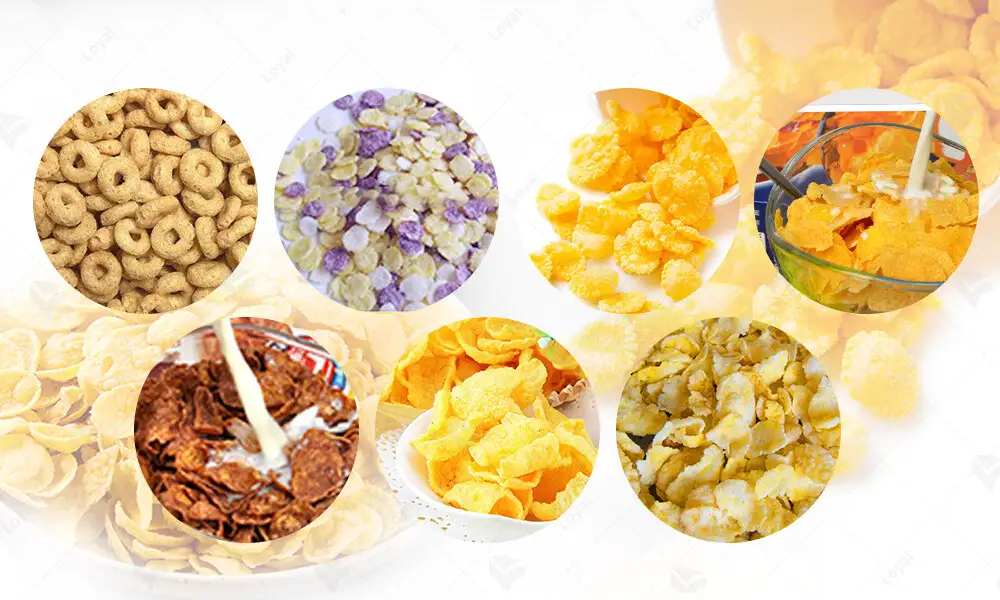
Future Outlook for Cereal Bar Production
The cereal bar production line is poised for significant developments in 2024, driven by both technological advancements and evolving consumer preferences. As an industrial food machinery expert, it is clear that the future of cereal bar production will be characterized by enhanced efficiency, sustainability, and adaptability.
One of the primary trends anticipated in the cereal bar production line is the integration of advanced automation technologies. Automation will streamline various stages of production, from ingredient mixing to final packaging, reducing the reliance on manual labor and minimizing human error. This shift not only speeds up production but also ensures a high level of consistency and quality in the final product.
Sustainability will also be a crucial factor shaping the future of the cereal bar production line. Manufacturers are increasingly adopting eco-friendly practices, such as using renewable energy sources and implementing waste reduction strategies. These sustainable practices not only align with global environmental goals but also cater to the growing demand from consumers for environmentally responsible products.
Additionally, customization is expected to be a significant trend in the cereal bar production line. With consumers seeking personalized and health-focused options, production lines will need to be flexible enough to produce a variety of cereal bar types, including gluten-free, organic, and high-protein variants. This adaptability will require machinery capable of efficiently handling diverse ingredients and formulations.
In conclusion, the future outlook for cereal bar production in 2024 is promising, with advancements in automation, sustainability, and customization driving the industry forward. Companies that invest in state-of-the-art cereal bar production lines will be well-equipped to meet the evolving demands of the market.
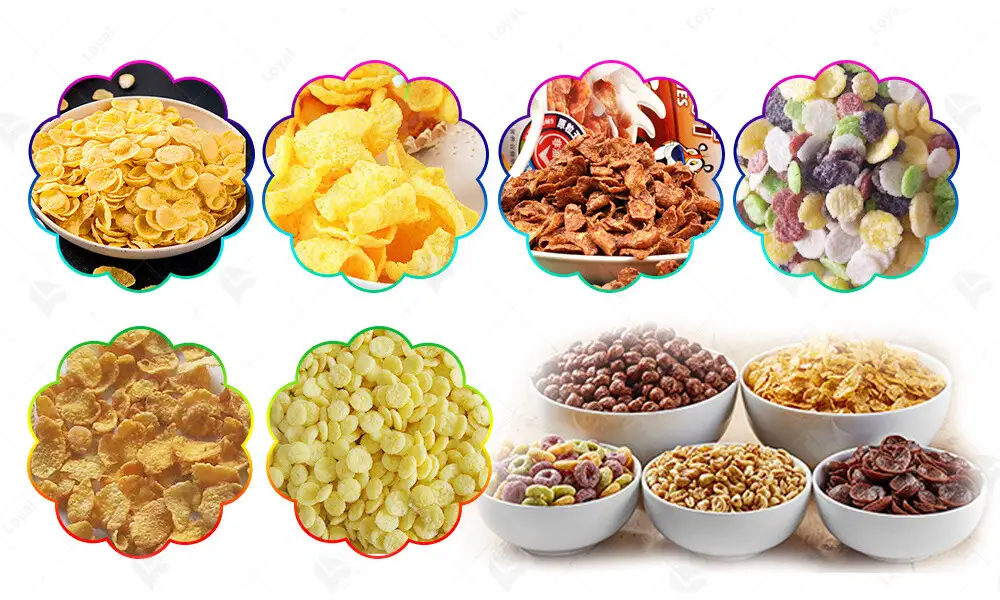
Reference
The following are five authoritative foreign literature websites in the field of Industrial food machinery:
1. Food Engineering Magazine
Website: https://www.foodengineeringmag.com/
2.Food Processing Magazine
Website: https://www.foodprocessing.com/
3.Journal of Food Engineering
Website:https://www.journals.elsevier.com/journal-of-food-engineering
4. Food Manufacturing Magazine
Website:https://www.foodmanufacturing.com/
5. International Journal of Food Science & Technology
Website:https://onlinelibrary.wiley.com/












